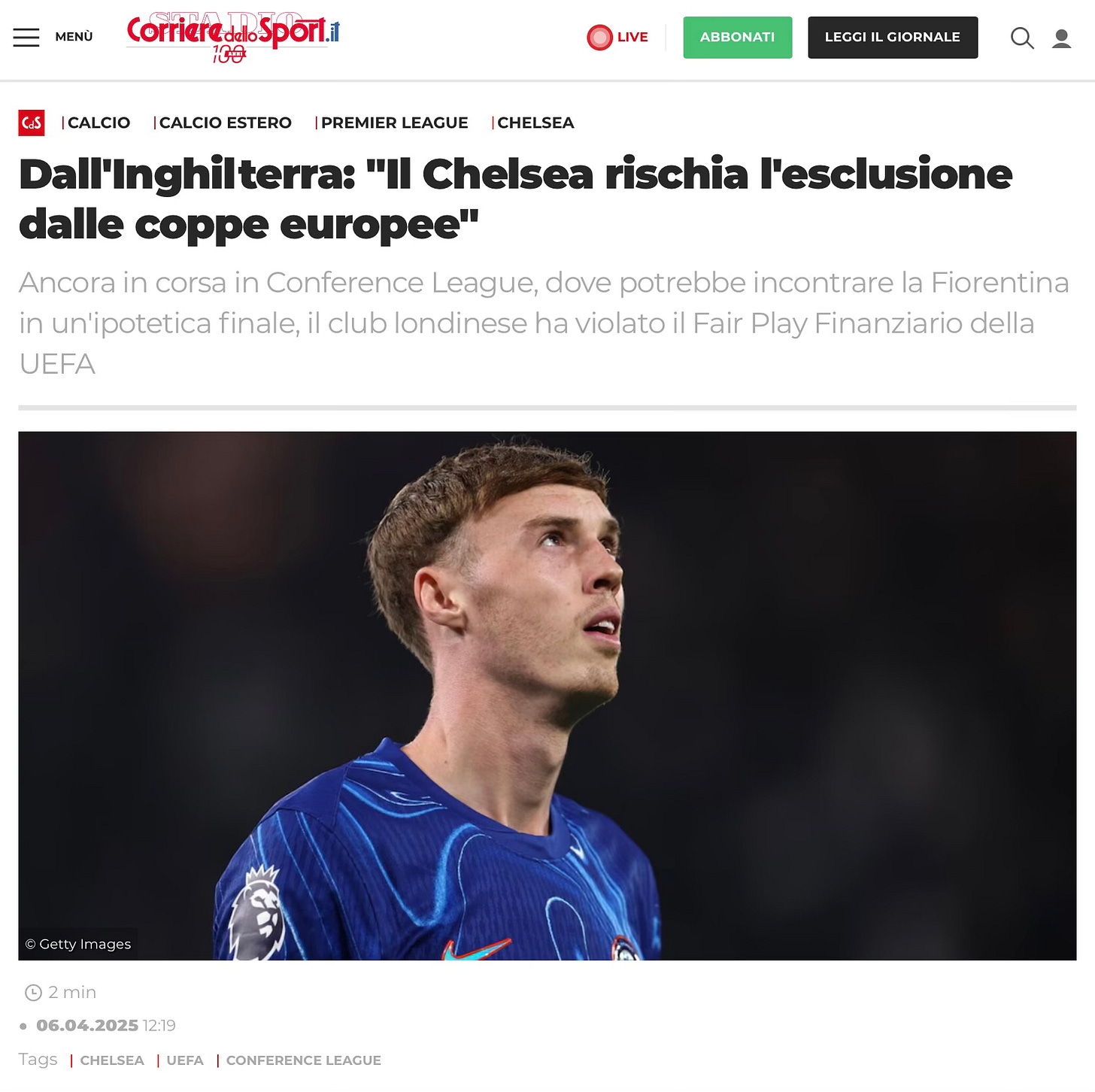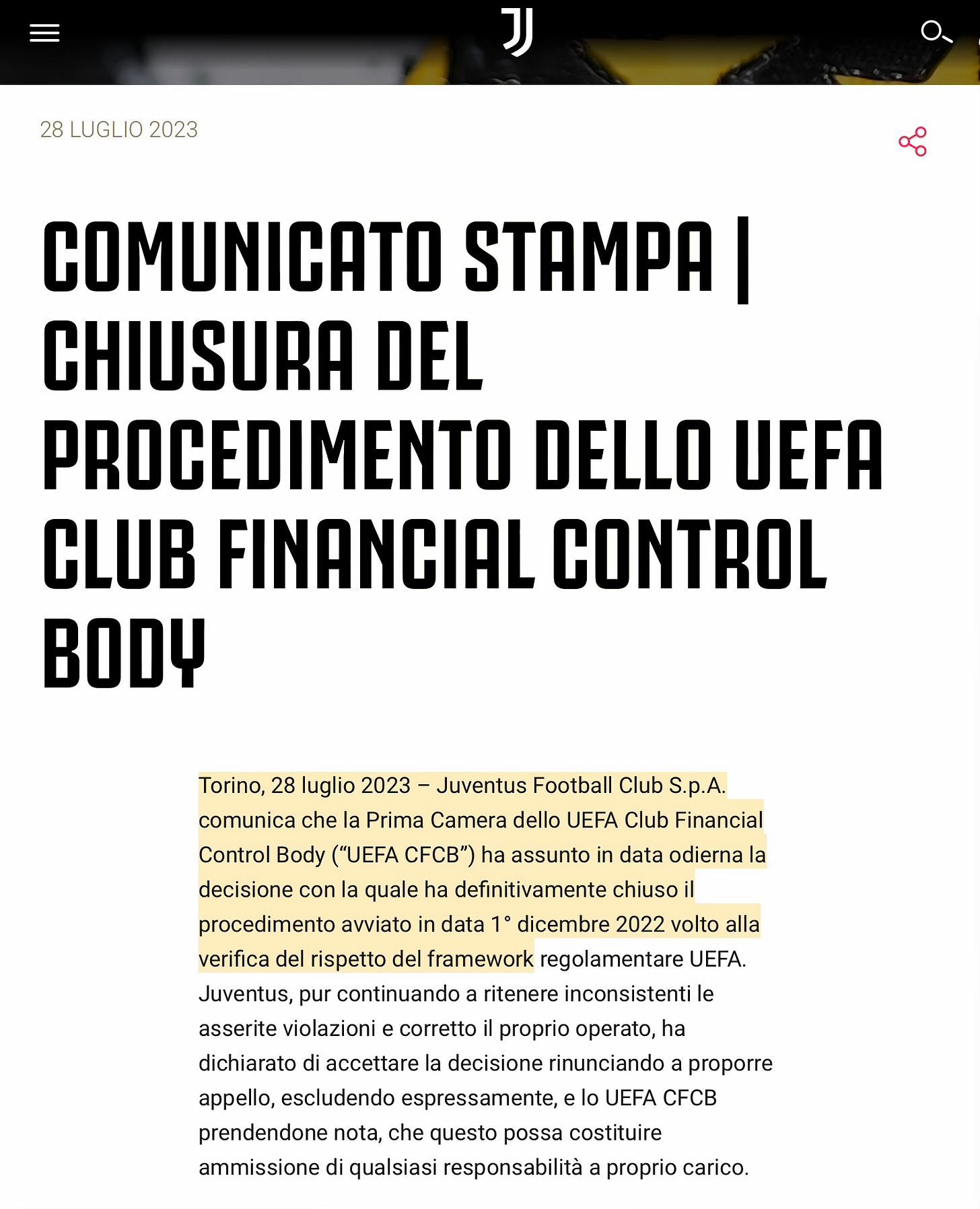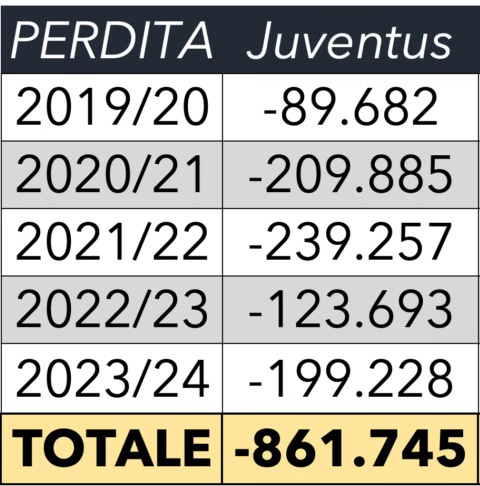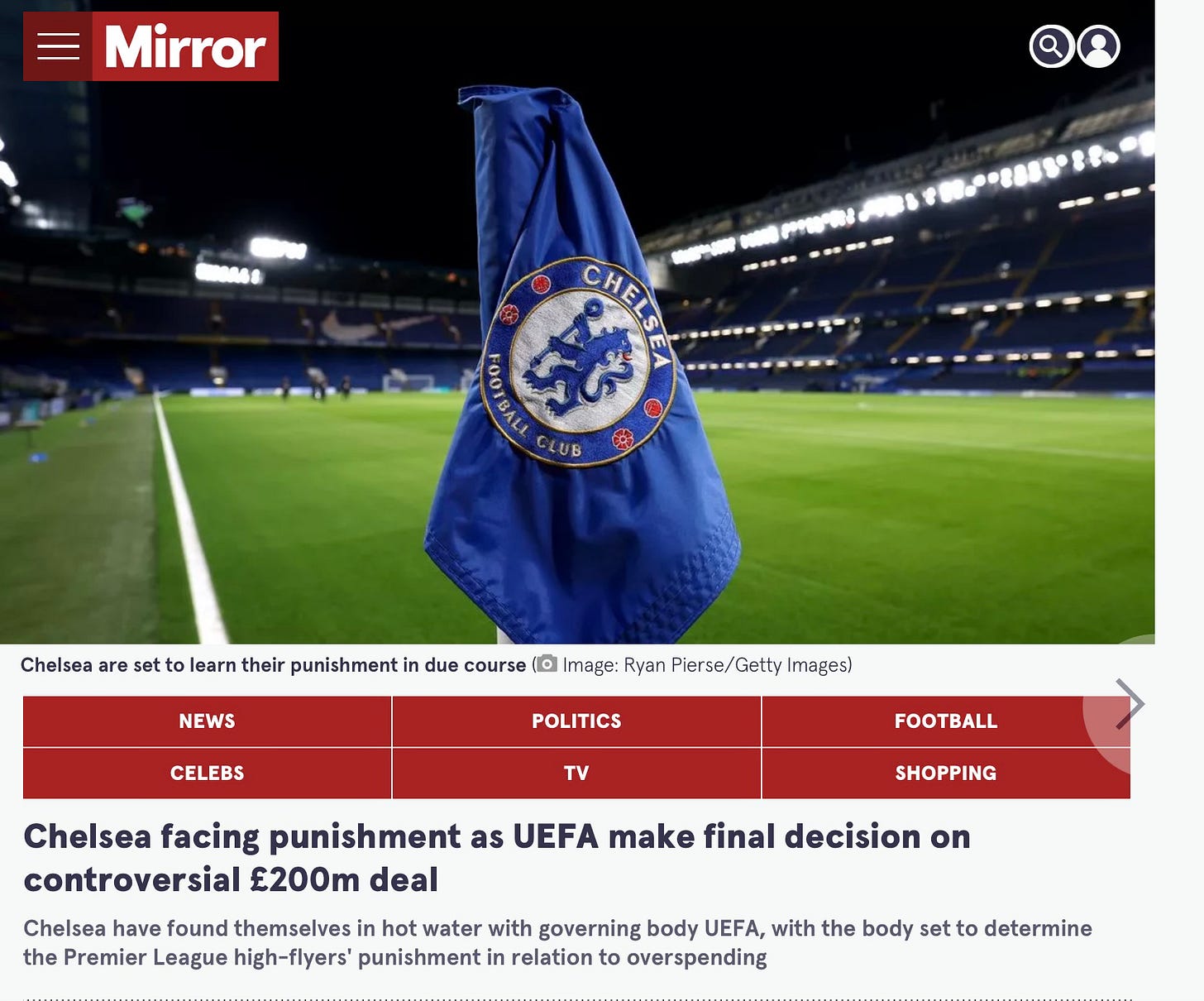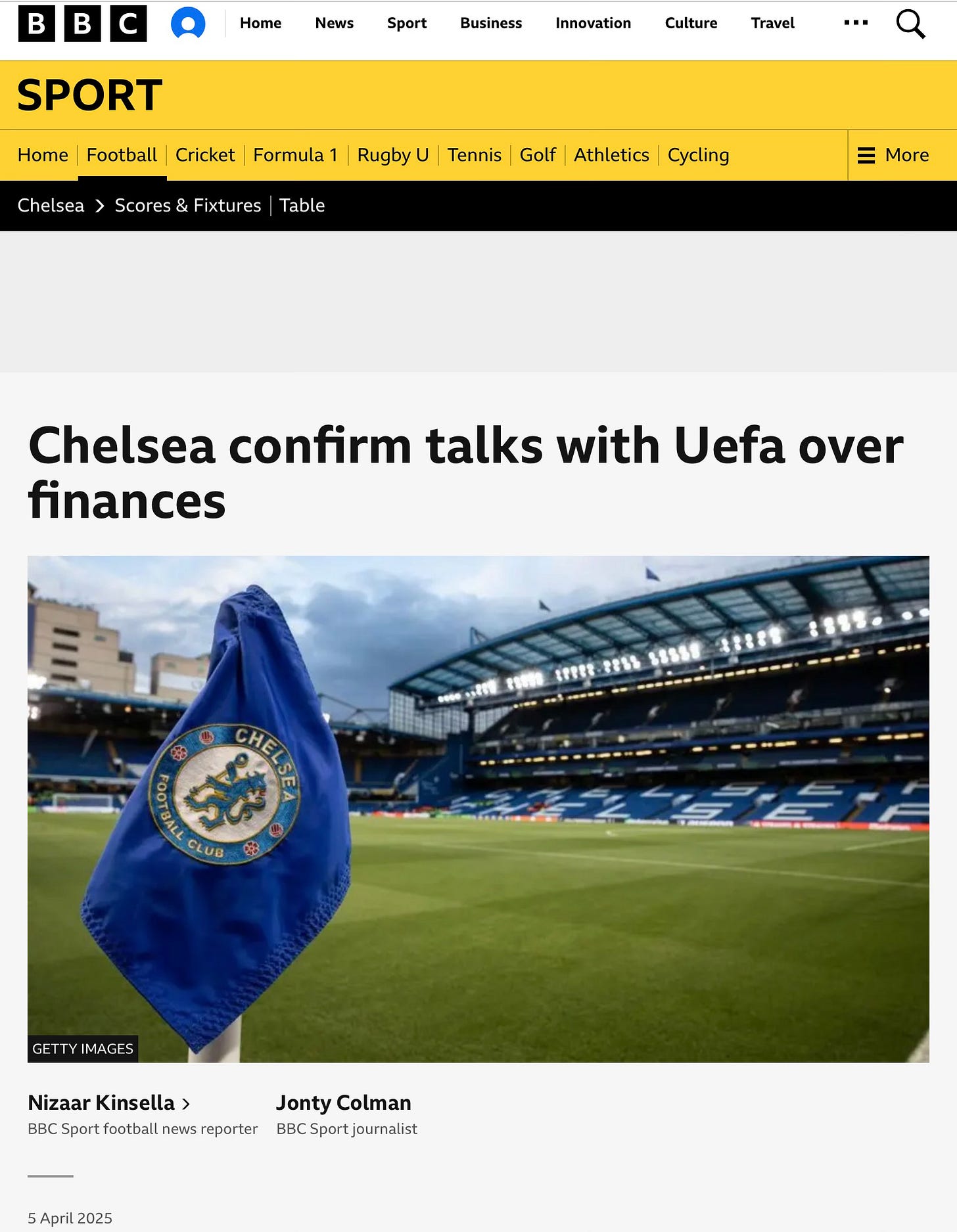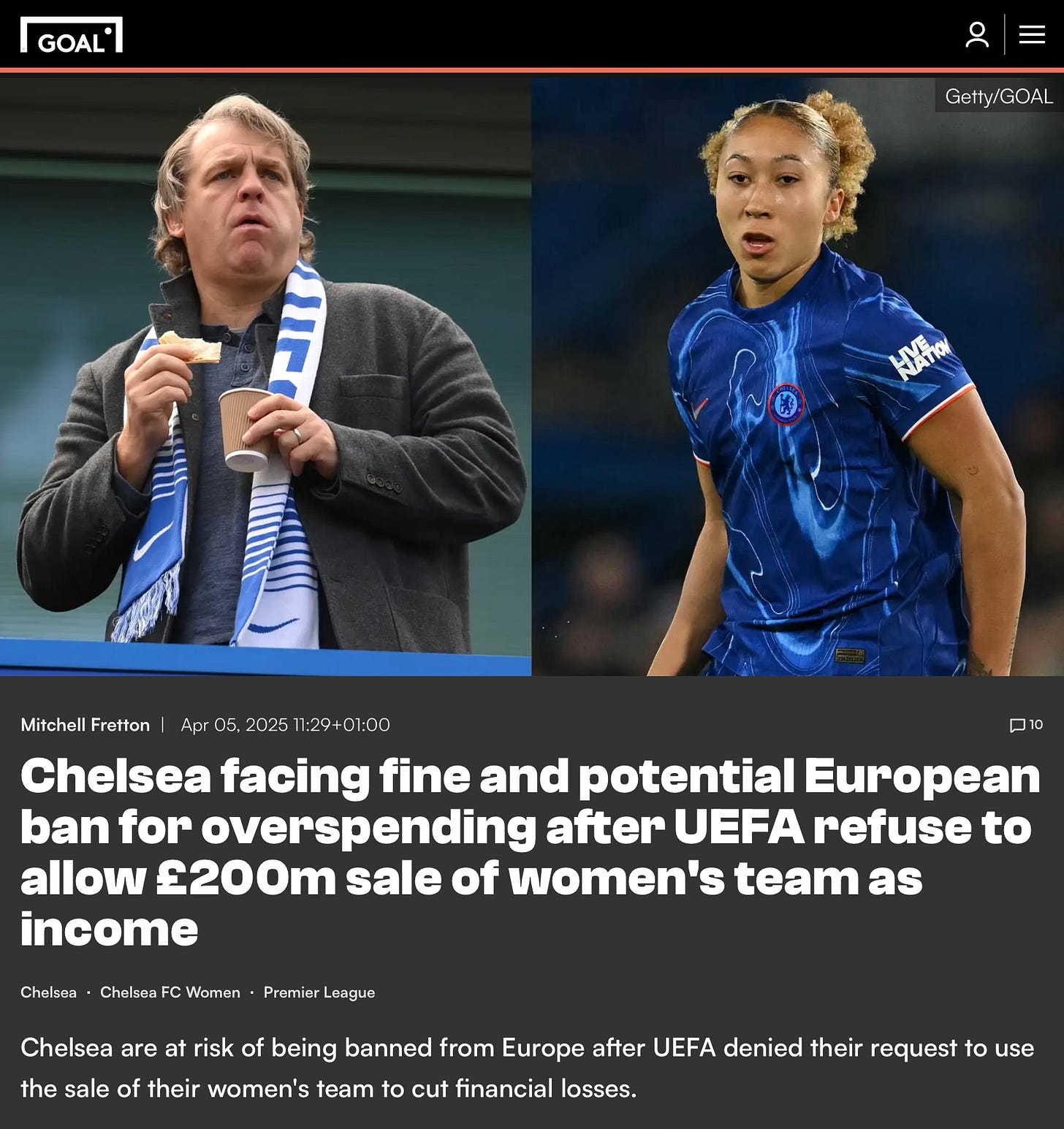The shame of italian media: they talk about Chelsea at risk of Cup exclusion for losing 420 million in three years but stay silent on Juventus, which lost 323 million in two Years
The rules prohibit a deficit exceeding 60 million over 3 years. A 10-million fine left pending in July 2023, is already confirmed: but the severity of the violation could push both clubs out of Europe
(Translated into English by Grok)
If there existed a tool capable of measuring the degree of servility of newspapers and TV in the world of Italian football—a Mercalli Scale of flattery and sycophancy, or if I may, a “bootlick-o-meter”—surely in these days, that tool would go haywire: the vibrations felt are just too strong. Yes, because there should be a limit even to groveling and submission. But the media in this beautiful country, when it comes to Juventus, outdo themselves every time, breaking the sound barrier—or rather, the silence barrier.
You might ask: why is Ziliani saying this? I’m saying it because for a couple of days now, newspapers, TV, radio and websites have been telling us about the serious risks facing Chelsea, one of England’s most prominent clubs. As the Corriere dello Sport clarifies right in its headline (I picked a random paper), “From England: Chelsea Risks Exclusion from European Cups.”
And why is that? Calciomercato.it explains: “UEFA Fair Play Violation: Losses Exceeding 400 Million Euros in Three Years.”
As everyone then informs us, one of the three UEFA Financial Fair Play (FFP) rules—perhaps the most important—forbids clubs from recording losses exceeding a total of 60 million euros over three years. Yet Chelsea is in deep trouble: in the last three years, it has posted losses of a staggering 420 million euros (385 million pounds), losses it desperately tried to mask or mitigate by selling two hotels and its women’s football team to itself—assets owned by the same club owner, Todd Boehly. Naturally, UEFA did not consider these revenues valid, as they came from “related-party transactions,” i.e., Chelsea pumping money into Chelsea’s own coffers. Now the situation is this: the club is trying to strike a deal with UEFA that would involve a hefty fine and the start of a three-year Settlement Agreement, during which Chelsea commits to getting back under UEFA’s limits, risking cup disqualification if it fails. In a month, by mid-May, we’ll know the decision. Meanwhile, the Premier League, prompted by the other 19 clubs, is also reviewing the Chelsea dossier to decide what measures to take against the team managed by Maresca.
All clear? Perfect. Just as clear and straightforward is Juventus’s situation, coming to us now. To start with, you’ll recall that in July 2023, Juventus was banned from UEFA competitions for a year due to serious irregularities hidden in its financial statements over the previous five seasons. Juventus itself announced this in an official statement released on July 28, 2023.
Yes, you read that right. In addition to the one-year ban, Juventus was hit with a 20-million-euro fine: 10 million to be paid immediately (deducted this year from their Champions League earnings) and 10 million more to be paid if their financial statements as of June 30, 2023, 2024, and 2025 were not compliant with UEFA FFP rules.
And here’s the first piece of news, which perhaps should be brought to the attention of the Exor ownership, assuming they don’t already know. The news is that the 10 million from the old fine, left pending, will now have to be paid by Juventus. The club has not complied with the rules in its financial statements as of June 30, 2023, nor as of June 30, 2024, and it hasn’t complied in the statements that will close in less than three months, on June 30, 2025. And the reason is obvious to everyone—except that I’m the only one writing about it while everyone else is paralyzed with fear at the mere mention of it. What happened is that Juventus, just like Chelsea, has closed its recent financial statements in disastrous fashion, with a loss of 123.7 million in 2022-23 and 199.2 million in 2023-24, totaling 322.9 million over two years. And it’s happening again: the next financial statement, the third, will also close with a significant deficit, bringing Juventus’s three-year total past 400 million—perhaps even exceeding Chelsea’s 420 million—and in any case, dramatically far from UEFA’s 60-million ceiling.
Now, considering that Juventus’s financial statements are public and that Juventus itself—as a publicly traded company—releases them with official statements, the obvious question is: why are Italian media talking about Chelsea risking cup exclusion for losses over 400 million but saying absolutely nothing about Juventus, which has racked up losses exceeding 400 million and, unlike Chelsea, is a repeat offender? After all, Juventus is coming off a one-year ban for financial irregularities and is now required to pay the second half of the 20-million fine imposed two summers ago on top of its expulsion from Europe. If it’s possible to know, why do Italian media pillory Chelsea but forget Juventus when the infractions and violations are the same—and indeed, Madama’s recidivism makes its position even worse?
They might say: but Exor, as it has always done, will step in again to cover the losses with a capital increase. Fair enough. Except that doesn’t change the issue one bit or erase the club’s noncompliance. Just like with Chelsea, the money injected by Exor comes from “related-party transactions”—Juventus pumping money into Juventus’s own coffers. What matters here are the losses on the books. And like Chelsea, Juventus has accumulated losses at least seven times higher than the maximum allowed.
So, since this situation is known to everyone, why is no one saying anything? The Juventus of the new Scanavino-Ferrero-Giuntoli management, installed by John Elkann, has already been found guilty of “non-compliant financial statements” by Consob, just as it was three years ago when the regulatory body’s ruling triggered the Prisma Investigation by the Turin Prosecutor’s Office. That led to the ousting of the entire board, sporting and criminal trials (the latter still ongoing), and lengthy bans for top executives starting with Agnelli and Paratici. While Juventus has appealed Consob’s ruling to the Lazio TAR, temporarily stalling its consequences, it will soon have to answer to UEFA for failing to comply with FFP. Chelsea is already doing so, as all English media, led by the BBC, have been reporting for some time.
Here, though? Total silence on Juventus. However, upon hearing of Gravina’s promotion to UEFA vice president under Ceferin, Juventus lit a candle to the Madonna PGV (for grace received). In the summer of 2023, the three-year ban requested by the CFCB was reduced to one, thanks in part to the good offices and intercession of the federal president who, in Italy, had just orchestrated the shameful plea deal that swept the trials under the rug. Today, it’ll take the best “brand-saving” Gravina to minimize the inevitable sanctions Juventus will face at UEFA.
No need to add that while in England all Premier League clubs have taken a stand against Chelsea for breaking rules respected by everyone else, in Serie A, not a single club has spoken out demanding action against Juventus, which continues to flout the rules and undermine the fairness of the championships. Everyone’s silent, all in line like in a village procession ending with a bow—while the media blare their trumpets and beat their drums in the finest tradition of Italy’s provincial backwater.
Mass has begun again: let’s exchange a sign of peace.





